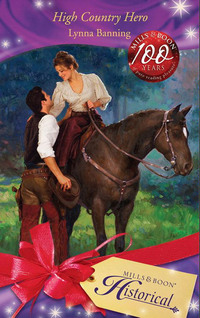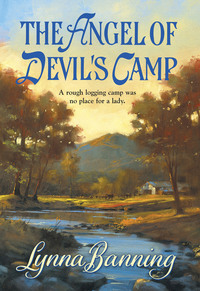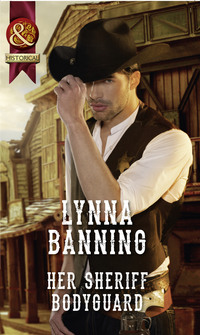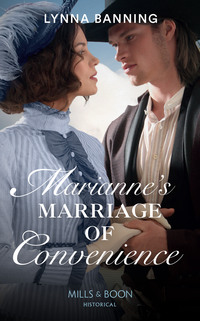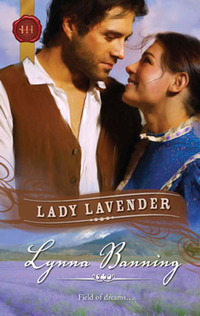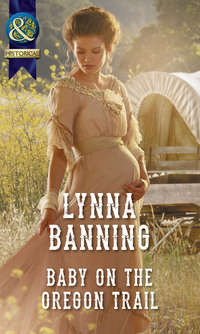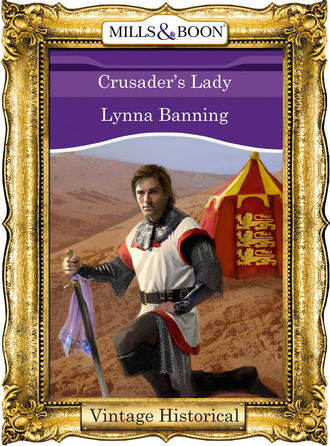
Полная версия
Crusader's Lady
She watched the knight’s chest rise and fall with his steady breathing. She must do it. She had pledged her word to God. She tossed another, larger stone.
Marc flicked one eyelid open, then instantly snapped it shut. The boy still sat by the fire, his slim body hunched over his knees. Asleep, probably. Or watching him. Waiting.
The large ruby embedded in the Saracen dagger hilt chewed into the flesh of his back, but rather than roll over and ease the annoyance, he would endure. A blade secured under him was a blade that could not be used against him.
God have mercy, he had killed the Saracen in unthinking haste, and the ease with which he’d done it stunned and ashamed him. He felt sorry for the slave boy opposite him. Unending warfare ate away a man’s soul, poisoned his spirit. It had to stop. He couldn’t stomach another killing, not even of a servant.
He shifted uneasily, stretching out his legs. God, the longer the struggle for Jerusalem, the less human he became. Week after week Saladin’s warriors encircled the Frankish camp arrayed outside the city gates. Before them naught faced Richard’s army but stone walls. If the Franks moved their camp north or south, the Saracens again surrounded them once night had fallen. It had been thus for months. The battle for Jerusalem was a stand-off.
The butchery on both sides was beginning to make no sense. Richard did not covet Jerusalem for himself. The king was attacking a city he knew he could not hold. Was this interminable siege of the high stone walls just for show? Was Richard merely playing out the slaughter to best Philip of France and the German baron, Leopold of Austria?
He studied the slight figure of the Arab boy, asleep where he sat before the dying fire. There was a time when he himself had been as foolhardy and brave as that lad. And as innocent of the ugly side of life.
At dawn, he rolled over, reassured himself the dagger was still secure at his back and came to his feet. The boy sat tipped to one side, snoring lightly. Let him sleep. He and the king would be gone before the camp awakened.
He let his warhorse nibble a handful of the grain he had hoarded, pulled on his mail shirt and blue overtunic and flung the heavy leather saddle upon the animal’s broad back. When he had buckled on his sword belt and turned to mount, he found the boy grinning at him from atop the horse.
‘Get down,’ Marc ordered.
‘I will not, lord. How am I to attend you if I do not ride with you?’
‘I do not need a servant.’
‘Not true, lord. You need me. I assure you, I am no ordinary servant.’
A harsh laugh chuffed past Marc’s lips. That was obvious enough. ‘Get down,’ he repeated. ‘Now.’
The youth tilted his frame to one side, slid sideways and dropped gracefully to the ground. How, Marc wondered, had he managed to mount the huge animal in the first place?
‘Where do we ride?’
‘I ride south. You can go to the devil.’
The boy hissed in a breath. ‘Surely you would not wish it so!’
Marc clenched his jaw. ‘You are an outspoken brat. Ill-mannered and stubborn.’
‘Aye, lord. I am stubborn, I admit it freely.’
‘Go!’ Marc roared the word hoping to frighten the boy. Instead, the lad sent him a look designed to charm devils.
‘Where shall I go, lord?’
‘You can go to the latrine,’ Marc said with a jerk of his chin. ‘That way. Go.’
The boy scampered off in the direction Marc pointed. When he was sure the lad had not doubled back, he secured his sword belt, tucked his canvas utility bag behind the high-backed cantle and mounted his warhorse.
With an odd niggle of apprehension, he stepped the animal forward, toward the prearranged meeting place with the king.
Chapter Three
Soraya did not go to the latrine. She crept behind a hillock where she was hidden from view. Then she picked her way back among the sleeping camps and already bustling servants toward the knight’s camp.
Yawning Frankish squires sharpened swords or scrubbed chain mail shirts with handfuls of wet sand, paying her scant attention. But her soft massa al-khayr to the Arab servants brought a quick smile and a polite ahlan.
It always surprised her that Arab slaves were common among the Franks, taken as spoils of war and traded back and forth by the victors like sacks of grain. But then she herself had been acquired by Khalil in much the same manner. She had been captured as a child by Arab raiders and taken from her mountain homeland across the sea to a sheik’s harem. At least they had educated her well, but she was happy to leave when Khalil bought her at the slave auction when she was but ten summers.
The Frankish camp was a filthy place. Flies buzzed everywhere, and she wrinkled her nose in distaste at the smell of unwashed bodies and horse dung. At one camp she managed to snatch a fragrant ripe pomegranate from a fruit basket, then gradually worked her way toward the largest of the tents. Made of crimson silk instead of rough canvas, it was easy to pick out among the myriad of smaller ones; a scarlet-and-gold pennant fluttered from the top. If only she could deliver her message now, but it would have to wait. She had to recover Khalil’s dagger. She looked around for her quarry, then halted suddenly. The Frankish knight was approaching from the opposite direction, a scowl on his sun-darkened face. He led his huge horse by a worn leather bridle, and Soraya frowned. Already she had learned that he allowed none other than himself to mount the great black beast. She would not soon forget his look of pure fury when she’d scrambled into the saddle ahead of him.
She watched him with curiosity. He was tall and well muscled. The man was pleasing in some way; perhaps it was his voice, rich as honeyed syrup. Or his eyes.
Pah! It mattered not. He would be a dead man by nightfall.
He strode toward the large tent, his gait slightly uneven, perhaps from an old wound. His warrior’s body must be battle-scarred, and that heavy chain mail shirt and leggings would weigh as much as she did.
Franks were foolish indeed. Arab warriors wore mail, as well, but it was lighter and their horses were smaller and faster. Besides, the Arabs purposely rode mares because when the mating scent was upon them, they wreaked confusion among the heavy Frankish stallions. A great many warhorses had been slaughtered in battle and still the invading Christian armies failed to realise their error.
The knight veered left, away from the great tent of red and gold, and she ducked out of sight behind a smaller, tattered canvas structure to watch him. She would snatch the dagger and then find the king. That was almost as important as avenging Khalil’s death.
The knight skirted several cook fires and made his way to a cluster of boulders two dozen paces from the camp’s perimeter. Soraya circled around and darted forward to the opposite side of the tumbled rocks, crouched low and cautiously peered through an opening.
The first thing she saw was the hindquarters of another horse, a lesser animal than the knight’s beast but well accoutered. The leather saddle was plain but polished to a soft gleam. The wool under blanket was adorned with embroidery and decorative leatherwork detailed the harness. The stirrups were smooth pieces of curved black iron.
On the animal’s back sat a cowled religious man. A monk. Was then ‘her’ Frank—she snorted at the designation—a Templar knight? A Hospitaller? Such knights wore white surcoats with a four-sided red cross sewn on the front, but no such cross emblazoned the knight’s blue surcoat.
He was not a religious, then. Good. It would be harder to slit the throat of a servant of God…
The monk raised his hand in greeting, and the Frank inclined his sun-streaked dark head in response. So, he respected the holy man. The two men exchanged a few words in low tones, only one of which she heard clearly. Jaffa. Then the knight turned away to mount his horse.
She understood at once. They were leaving the camp, riding south to the port town of Jaffa. If she would kill the Frankish knight and retrieve the dagger, she must go with him! She must move now! She would think about how she would come back to the camp and deliver the message to the king later.
She bolted from her hiding place, skittered the few paces to where the Frank stood and threw herself on the hard ground at his feet. ‘Lord, forgive your miserable servant, but I could not find what you commanded me to bring you.’
The tall knight glowered at her without speaking. Soraya dared not look up until she heard his voice.
‘And what was it I commanded you to bring?’ His voice was cold and hard as metal.
‘Why, a horse, lord! You sent me to find another mount. Do you not remember?’ She risked a peek at his knees, then raised her gaze to the wide leather sword belt encircling his waist. Finally, with a murmured prayer, she looked into his harshly planed face.
His expression stopped her heartbeat. Exasperation showed in the set mouth and the frown creasing his sun-darkened forehead, but a hint of grudging admiration flashed in the clear blue eyes. A blue like the azure-enameled mosaic stones on the floor of the mosque. A blue, she suddenly thought, like the sunlit sea of her native land.
‘I recall no such task,’ he said shortly.
Soraya sighed dramatically, flicked a glance at the holy man, then swaggered a step closer to the tall knight. ‘Lord, do you never grow tired of this game? Each morning you command and I obey, and then you forget what you commanded and I appear but a foolish boy.’
‘And an imaginative one,’ he shot back.
‘Oh, yes, lord,’ she agreed, warming to her charade. ‘I can imagine many fine things. But this time…’ She dropped her head in sham embarrassment. ‘This time I have failed. I could not find the horse you sent me for.’
The hooded monk stepped his mount toward them. ‘You have a servant now, de Valery?’ he asked in a raspy voice. ‘Why did you not tell me?’
Her knight snorted. ‘I have no servant.’
‘Do not bluster at me,’ the monk said with a weak laugh. ‘The wind from your mouth will blow this “holy man” off his mount.’
‘Your ma— Father, this boy is not my servant. He has naught to do with me.’
Soraya grasped one of her knight’s gloved hands and sank to her knees before him. Where he traveled, so must she. She would stick to this man like a prickly desert burr. Like a flea under his tunic…like a sticky almond paste smeared over his loathsome skin. She would see him dead if it was the last act of her life.
‘’Tis a sin to lie, lord. You taught me so yourself. I am your servant, and I serve you well and faithfully.’ She touched her forehead to the hand imprisoned in both of hers. ‘Do not deny me, master. Where should I go but with you?’
She let herself slip down to press her brow on his leather boot. Yes. She especially liked that last part.
The monk made an impatient sound, half cough, half oath, and Soraya leaped to her feet. The holy man waved a floppy sleeve at the Frank. ‘Your boy is too young and puny to walk, de Valery. Since you have not another horse, take him up with you and let us be off.’
Her knight grumbled, but the holy man cut him off. ‘I did not bring my own servant lest he tittle-tattle what he knows. It is good to have one, nevertheless. Yours will do.’
The tall knight scowled at the monk, then turned his unsmiling face down at her. Seizing the moment, Soraya sprang onto the horse’s withers, grasped the coarse mane and clawed herself up until she once again occupied the padded leather saddle.
The Frank swore a truly blasphemous oath about the toenails of God, dragged her off and swung himself into the saddle. Then, with a look of distaste, he reached down, grasped her elbow so tightly her arm went numb and swung her up behind him. The expression in his eyes sent a scorpion crawling up her backbone.
She wrapped her arms about his solid form and felt the lumpy hilt of the dagger—her dagger—he carried in his belt poke against her wrist. Her spirits soared. The weapon she needed was right there, within her grasp!
But if she reached for it now, he would pin her arm and break the bone before she could strike. She would wait until he moved or twisted in the saddle and the knife presented itself to her seeking hand.
She hid a smile. She had outmaneuvered the surly Frank with the unwitting help of the Christian holy man. Khalil would have been proud of her.
The great warhorse beneath her snuffled loudly and began to move forward, and Soraya tightened her arms around the knight’s waist. The metal rings of the mail shirt he wore under his knee-length tunic prodded her chin.
God preserve her! Never before had she been so close to any man. Her senses careened crazily, making her aware of every sound and smell, the jingle of harnesses, the low murmur of men waking up, giving orders, breaking their fast, the yeasty scent of baking bread, even the sour taste of the stolen pomegranate seeds on her tongue.
And then with a jolt the horse picked up its pace and she forgot everything but staying seated.
For hours they rode south, toward Jaffa, under the burning desert sun, finally stopping at a small village late in the hot afternoon to refill their water skins at the well. Marc sent the servant boy through the town gate with the empty vessels; he and the king would rest in the protection of a shady olive grove while the lad fetched water.
Exhausted, the ailing king dropped off his horse, stretched out beside his mount and closed his eyes. Marc frowned. Richard had developed a hacking cough, and the inferior horse he had bargained from a dying Templar was slowing their progress. They dared not dally lest someone guess that the monk’s robe, with its ragged moth holes, covered the Lion Heart of England.
He cursed under his breath. No one save Richard’s mother, great Eleanor, had ever been able to reason with the king. To settle his unease, he began to sift handfuls of fine grey dust through his fingers. Had he not sworn to obey the king, Richard would never have ventured outside his tent.
But the king followed his own impulses, regardless of his barons’ arguments. Night after night Marc listened at the noisy council in Richard’s tent and kept quiet. Only when the king asked him a direct question did he venture an opinion, and while Richard listened at length, in the end it always went Richard’s way.
The Lion Heart could do no wrong. Thus far Richard had rolled his seasoned, heavily armed warriors over the Saracen forces with bloody success; in the eyes of his followers, the man was more god than king.
Until now. Marc eyed the motionless form stretched in the shade beside his horse. This was a fool’s plan. A king’s fevered whim.
A sharp cry brought his head up. The servant boy darted through the village gate and raced toward them at such speed he looked to be skimming above the ground. Another cry, this time a gutteral shout, and then Marc saw the reason why the boy ran.
Two—no, three—merchants tumbled through the gate, arms waving. ‘Thief!’ the first man shouted. ‘Stop him!’
The panting boy dashed up to where Marc rested in the olive grove and stopped short. In the next instant he dropped to his knees, jerked up the hem of Richard’s voluminous monk’s garb and wriggled underneath. The robe twitched once and was still.
Scarcely three breaths later, the first merchant puffed to a stop before him. ‘Did you see that boy?’ he said in Arabic.
‘Boy?’ Marc replied in a lazy voice. ‘The skinny one who trampled through our resting place without a by-your-leave?’
‘That’s the one. He stole a loaf of bread and—’
‘And a round of cheese,’ the second man added as he limped to a stop. The third merchant, tall and sallow with one drooping eyelid, gasped for air but said nothing.
Marc idly sifted another handful of dust through his fingers. ‘The boy is gone,’ he said in the same nonchalant tone. ‘Into the olive grove. No doubt at this moment he is scampering on down the hill.’
The merchant swore an inventive oath. Marc understood its earthy implications, but he did not smile.
Two of the men then dashed into the grove. ‘We shall catch him at the crossroads!’ one yelled.
But the third man, the tall, silent merchant, eyed Marc’s black warhorse, then gazed at Richard’s prone body. Slowly he walked toward the ragged, motionless figure on the ground and prodded at the monk with the toe of one boot.
Chapter Four
King Richard sat up partway, propped himself on one elbow and signed an exaggerated cross over his chest. ‘Yes, my son?’ he said to the merchant in a pious voice. ‘Do you wish to confess?’
The man’s eyes blinked. ‘Allahu alukhaim.’
‘There is no god but Allah,’ Marc translated. The merchant backed away, then turned to follow the other two into the olive grove. When the turbaned men were out of sight, Marc spoke, directing his words to the moth-eaten habit on the ground.
‘They are gone, boy. You can come out.’
The wool robe shuddered and the disheveled lad emerged, a delighted smile on his face. ‘I thank you, lord.’ From inside his dust-smudged tunic he pulled a flattened loaf of bread, a dirty-looking hunk of cheese and a handful of dried herbs, which he dumped into a small leather sack at his waist.
‘Aha.’ Marc scowled at the youth. ‘You are a thief after all.’
‘Oh, no, lord.’ A disarming grin lit the boy’s face. ‘Say instead that I am a very skilled borrower.’
Richard chuckled. ‘I say the lad has wit and an enterprising spirit. Considering our situation, de Valery, you may be thankful for such qualities.’ The king straightened, then stood and clapped the boy’s shoulder. ‘You may ride with me, lad.’
The boy blanched.
Marc laughed until his eyes watered. With quick, sure motions the lad stashed the bread and cheese in Marc’s supply bag, grabbed a handful of Jupiter’s thick mane and wrestled himself up into the saddle.
‘Where do we travel now, lord?’
With a sigh, Marc again hauled the youth down off his horse, mounted in his place and lifted the small-boned frame up behind him. ‘There.’ He motioned ahead. ‘To the sea.’
‘Ah!’ The youth jerked in a hissed breath.
Richard climbed onto his sway-backed horse. ‘Pray God there is a ship waiting.’
A ship! Soraya caught her breath in a squeaked-out gasp. A ship that wallowed on the water while filthy men crawled over it like scavenger ants? Her blood turned cold. She prayed to God a ship was not waiting!
She was not afraid of a great many things, but being tossed about on the water was not one of them. She only vaguely recalled such a voyage, but the memory of the experience still haunted her. Her stomach roiled at the thought of standing once more on a ship’s deck.
And, she realised in growing horror, she was getting farther and farther away from Jerusalem and the English king.
She must devise some way to lay her hands on a weapon and end this miserable Frank’s life at once. Twisting her head slightly, she eyed the scabbard hanging from the knight’s belt. Could she slip the sword out? Yes, that might work. Perhaps when he next dismounted. She would ask for a swallow of water. Then, when his attention was diverted to his horse, or the saddle, or the water skins…
Yes! When he reached for the water…
The monk’s rough voice spoke behind them. ‘Look ahead, de Valery.’
‘I see it.’ The destrier stepped up its pace.
Soraya stretched her neck as high as she could to peer over the rise, yet could see nothing but sand and more sand. But when they reached the top of the hill, a cooling breeze brushed her face and all at once there lay the sea ahead of them, smooth as a porcelain plate and so blue the dancing light made it look bejeweled. It was so bright she couldn’t look at it for very long.
And in the harbor—God preserve me!—boats bobbed on the water. Hundreds of them! Fishing vessels. Canopied barges. Arab dhows. Ships with rows of oars and sails and men crawling up and down the masts.
Her mouth went dry. She ducked her head, restudied the position of the knight’s scabbard. It hung at his belt just so, and if he turned to his left, away from her…
The horse moved forward a few yards and halted. ‘Climb down, boy.’
Soraya slid off the destrier’s back so fast she lost her balance and stumbled onto her knees. She clenched her teeth at the holy man’s raspy laugh, and just as she started to scramble to her feet, the Frankish knight grabbed the front of her tunic and heaved her to a standing position. She stood so close to him she could see the beads of sweat on his upper lip.
His glance strayed to the water skins. Now was her chance. She inched her hand toward the protruding hilt of his sword. Focused on the skins, the knight turned away to his left just as her fingers closed over the cold steel.
Lord be praised. She did not have to drag the heavy weapon from its leather covering; the knight’s own motion away from her tipped the scabbard and separated it from the sword she gripped. Then he pivoted toward her, opening his mouth to speak.
Foolish man.
She wrapped both hands around the hilt and heaved the tip of the blade into the air. Lord, but it was heavy, like a great iron sewing needle balanced over her head.
Now. She would crash the weapon down and split his head right between those two puzzled blue eyes. She aimed for his nose and drew in a breath of resolve.
With a surge of strength, she extended the blade over her head as far back as she could and willed the cutting edge down for the killing blow.
Chapter Five
The first thing Soraya became aware of was the sound of laughter. Men’s laughter. Deep voices whooping out guffaws of hilarity.
She opened her eyes. What was she doing flat on the ground?
The knight’s sword lay at an odd angle, just out of her reach. Had she brained him and then fainted? Surely not. She never fainted. The women in the harem had taught her a trick to prevent such a breach of manners. Had that been so long ago she had forgotten?
She spat out a mouthful of grit. ‘What happened?’ Her tongue felt thick as a caliph’s chair cushion.
‘Far less than you expected,’ the holy man said with a chuckle. ‘Certes, I have not enjoyed such a joke since I left England.’
Joke! Speechless, she glared up at the two sets of blue eyes peering down at her. Two sets. So she had not killed her knight. The last thing she remembered was lifting the sword over her head, raising it higher…higher…
She recalled that it took every ounce of strength she possessed. And then what?
Her knight bent forward and hauled her upright by one arm. ‘What do you think happened?’ he growled. ‘The weight of my sword unbalanced you. You toppled over backward.’
He scowled at her while the holy man alternately coughed and chuckled. The look of black fury on the knight’s face sent a cold chill up her spine.
‘I can explain,’ she said quickly. ‘Truly, I—’
‘Don’t even try, boy. Your intent was plain enough.’
‘Oh, but—’
‘Silence!’
Soraya shrank away from him. His voice was like thunder when he was angered.
‘Let him be, Marc,’ the monk said. ‘As we have just observed, he is too puny to do much harm. Mayhap he is a better cook than a swordsman.’
‘Oh, indeed yes, lord.’ Soraya grasped at the straw the holy man offered. ‘Not only can I cook, I can prepare healing herbs for your fever and for your catarrh.’ She tried not to grin. ‘From the market-place in the village.’
The monk studied her for a long minute. ‘Very well,’ he said at last.
Her knight frowned at the holy man. ‘But my lor—’
‘What is it, de Valery?’ the monk snapped.
Soraya started. The holy man’s voice was even worse than thunder.
‘My lor— Father,’ de Valery pursued. ‘I ask you to consider the danger.’


